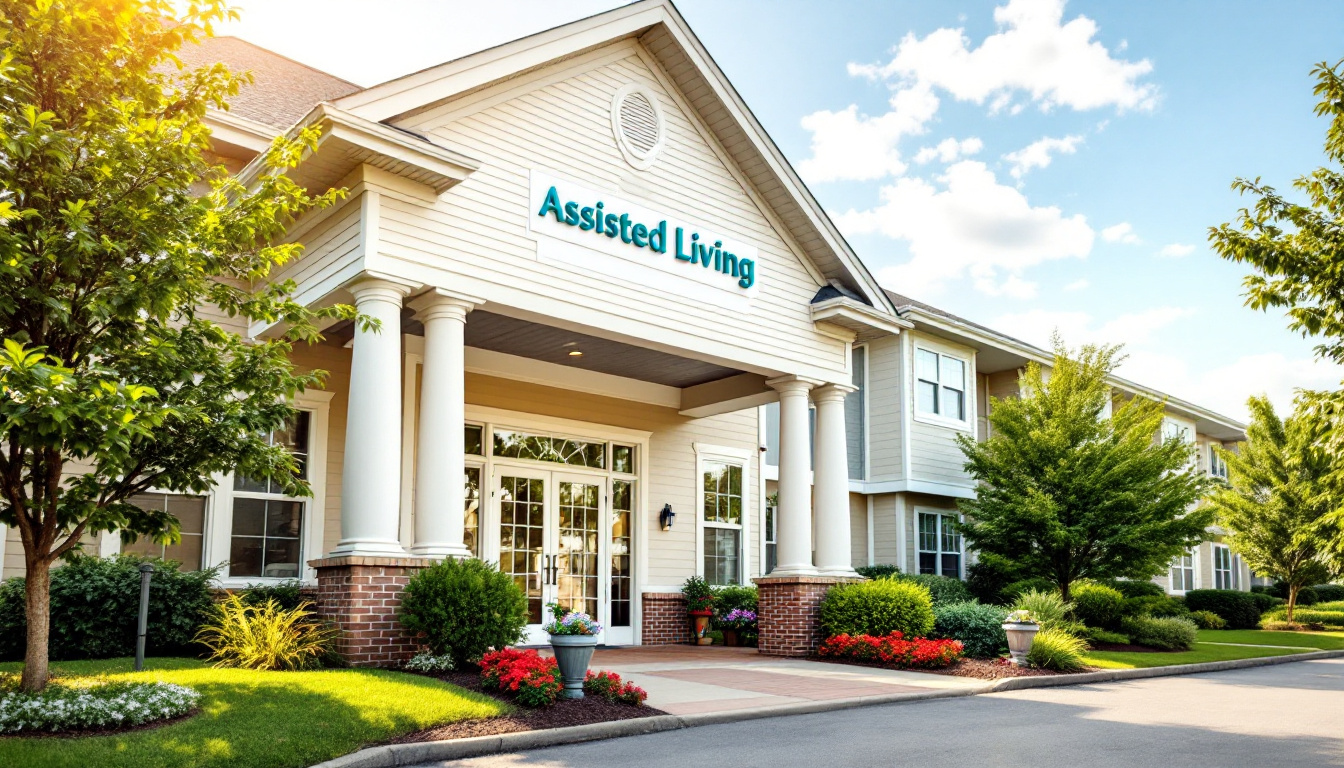The Role of Chaplains in Hospice Care and Spiritual Support
Compassionate Care at the End of Life: The Crucial Role of Hospice Chaplains

Understanding the Heart of Hospice Spiritual Support
Hospice chaplains serve as vital members of the interdisciplinary care team, providing compassionate spiritual and emotional support to terminally ill patients and their families. Their role is essential in ensuring holistic care that addresses not only physical needs but also the profound spiritual and existential concerns that arise during end-of-life situations.
Qualifications and Training of Hospice Chaplains

What qualifications are required to become a hospice chaplain?
Becoming a hospice chaplain involves a combination of formal education, specialized training, and certification. Typically, candidates start with a bachelor’s degree in religious studies, biblical studies, or a related field. This foundational education provides knowledge about various faith traditions, spiritual practices, and theological concepts.
After completing their undergraduate studies, aspiring chaplains pursue a master's degree in theology, divinity, spiritual care, or pastoral studies. These advanced programs deepen their understanding and prepare them for clinical and pastoral responsibilities.
An essential component of training is Clinical Pastoral Education (CPE). This involves supervised, hands-on experience providing spiritual care in healthcare or hospice settings. Most requirements include completing four units of CPE, each offering opportunities to develop skills like spiritual assessment, empathetic listening, and ethical decision-making.
Certification from recognized organizations, such as the Association for Clinical Pastoral Education (ACPE), is highly recommended. Certification verifies that a chaplain has met professional standards and competencies, including proficiency in spiritual assessments, cultural sensitivity, and ethical practice.
Endorsements from religious organizations and adherence to ethical guidelines are also important for credibility and professionalism.
In addition to formal qualifications, developing particular skills is crucial. Empathy allows chaplains to connect meaningfully with patients and families. Cultural awareness ensures respectful care across diverse beliefs and backgrounds. Strong communication skills enable effective listening, guidance, and support.
Altogether, it is this combination of education, clinical preparation, certification, and personal skills that equips hospice chaplains to deliver compassionate, respectful, and effective spiritual care to those facing end-of-life challenges.
The Integral Function of Spiritual Care in Hospice Settings

Addressing emotional and spiritual needs
Hospice chaplains provide compassionate support to help patients confront their emotional and spiritual struggles. They listen actively and validate feelings like fear, anger, or guilt, creating a safe space for expression. Through techniques such as reflective listening, prayer, and ritual, they address feelings of despair, loss, and uncertainty. This individualized care recognizes that spiritual needs vary and can be expressed through faith, nature, art, or personal reflection.
Promoting hope, acceptance, and peace
A core goal of spiritual care is to foster hope and acceptance. Chaplains assist patients in finding peace by exploring their beliefs, reviewing life stories, and addressing unresolved issues. Rituals like communion, life review, or memorial prayer help reinforce a sense of purpose and closure. These efforts promote emotional resilience and provide solace during the final stages of life.
Holistic approach to quality of life
Spiritual care is central to holistic hospice care, which emphasizes overall well-being. By integrating emotional, physical, and spiritual support, chaplains help improve quality of life. Studies show that spiritual support is linked to better comfort, reducing anxiety, depression, and loneliness. This comprehensive approach respects individual values and enhances dignity, allowing patients to experience meaningful end-of-life care.
Alleviating spiritual distress and anxiety
Patients nearing end-of-life often face fears—about death, unresolved conflicts, or spiritual doubts. Chaplains work to reduce this distress through interventions like guided prayer, life review, and connecting with faith communities or support groups. Addressing existential questions and providing reassurance can decrease feelings of helplessness, offering a calming presence and restoring a sense of hope.
Supporting personalized spiritual support
Each person's spiritual journey is unique. Hospice chaplains tailor their support to align with individual beliefs, whether religious, secular, or non-traditional. They respect cultural practices and facilitate meaningful rituals that reflect personal values. Connecting patients with their faith communities or spiritual practices supports comfort and continuity during a vulnerable time.
| Aspect | Description | Examples |
|---|---|---|
| Emotional support | Validating feelings and offering comfort | Listening to fears, addressing grief |
| Rituals & practices | Facilitating spiritual or religious ceremonies | Prayer, baptism, memorial services |
| Connecting with community | Linking patients to faith groups or social support | Contacting clergy, support groups |
| Personalization | Tailoring care to individual beliefs | Secular meditation, nature-based rituals |
| Outcomes | Enhances peace, dignity, and purpose | Better quality of life, reduced anxiety |
Spiritual care plays a vital role in making hospice a compassionate and comprehensive experience. By addressing the whole person—body, mind, and spirit—chaplains support patients and families to find meaning, serenity, and dignity in their final journey.
Types of Spiritual Support Provided by Hospice Chaplains

What types of spiritual support do hospice chaplains provide?
Hospice chaplains offer a variety of spiritual support designed to meet the unique needs of each patient and their family. Their primary goal is to provide comfort, reassurance, and a sense of peace during a challenging phase of life.
One of the fundamental ways they do this is through emotional comfort and active listening. Chaplains create a safe space where patients can freely express their fears, hopes, regrets, or spiritual doubts. They listen empathetically, helping individuals process complex feelings such as grief, anger, or despair, which are common at the end of life.
In addition, they facilitate religious rituals and sacraments like prayer, communion, baptism, or anointing, according to the patient’s beliefs and preferences. These rituals can be deeply meaningful, offering spiritual reassurance, forgiveness, and a sense of connection to their faith community.
Guidance on meaning and purpose is another vital aspect. Chaplains help patients explore questions about life, death, and spiritual beliefs, fostering reconciliation and acceptance. They support individuals in reflecting on their life’s journey, legacy, and what gives their life meaning, which can promote peaceful acceptance and emotional healing.
Support for grief and bereavement is also a significant part of their role. Chaplains assist families before and after a loved one’s passing, guiding them through mourning, offering spiritual comfort, and helping them find closure. Their presence helps families navigate loss while honoring their personal beliefs and cultural practices.
To enhance healing and comfort, chaplains often use tools like prayer, meditation, and music. They may sing familiar hymns, play calming music, or guide patients through meditative practices tailored to their spiritual or cultural preferences. These interventions help patients find inner peace, reconnect with their spiritual strengths, and foster a sense of serenity during their final days.
In summary, hospice chaplains provide compassionate and comprehensive spiritual support through emotional listening, sacred rituals, existential guidance, grief counseling, and the soothing use of prayer, meditation, and music. This holistic approach helps individuals embody dignity and hope as they approach the end of life.
Fostering Diversity and Respect in Hospice Spiritual Care
How does hospice care respect diverse spiritual and religious beliefs?
Hospice care emphasizes honoring each individual's unique spiritual and religious identity. Chaplains and spiritual counselors collaborate closely with patients and their families to understand their specific faith traditions, cultural backgrounds, and personal values. This personalized approach ensures that the spiritual support provided aligns with the patient's beliefs.
Care teams foster a safe, welcoming environment where patients feel comfortable expressing their fears, hopes, or questions about life and death without judgment. This openness encourages meaningful conversations and helps address existential concerns with sensitivity.
Spiritual rituals and practices, such as prayer, meditation, or symbolic ceremonies, are integrated into care plans when appropriate. These interventions are tailored to each person's spiritual worldview, whether they follow a specific faith, practice secular spirituality, or have no particular religious affiliation.
Ultimately, hospice services aim to respect individual spiritual expressions, promote peace, provide comfort, and support emotional well-being during this important life stage. This inclusive approach ensures that all patients receive compassionate, culturally sensitive spiritual care that affirms their values and beliefs.
The Impact of Spiritual Support on End-of-Life Experiences
What impact does spiritual support have on patient comfort and family support during hospice care?
Spiritual support plays a vital role in hospice care by greatly enhancing the comfort and emotional well-being of patients and their families. When hospice chaplains offer personalized spiritual care, patients often experience a greater sense of peace and acceptance during their final days. This assistance helps reduce feelings of anxiety, fear, and despair by addressing existential questions and providing hope. Many patients find relief through rituals, prayer, or life review activities that align with their beliefs, helping them feel connected and valued.
For families, spiritual support offers vital solace amid grief. Chaplains help family members process their emotions, facilitate meaningful goodbyes, and find pathways to healing. Addressing the spiritual and emotional needs of both patients and families through tailored interventions fosters a sense of reconciliation, forgiveness, and closure.
In addition, interdisciplinary interventions like spiritual assessments and ritual facilitation address individual distress and promote psychological well-being. By tending to the whole person—body, mind, and spirit—spiritual support significantly contributes to the quality of life in hospice, honoring the dignity and dignity of each individual during the most vulnerable moments.
Embracing Compassionate End-of-Life Care
Hospice chaplains play an indispensable role in enriching the end-of-life experience by providing holistic, respectful, and culturally sensitive spiritual care. Their presence fosters hope, peace, and meaning, ensuring that patients and families feel supported, dignified, and fulfilled during one of life's most profound journeys. As integral members of healthcare teams, chaplains help uphold the dignity of each individual, emphasizing that compassion and understanding are the greatest medicines at the end of life. Their work exemplifies the power of spiritual care to transform challenging moments into opportunities for healing, reconciliation, and grace.
References
- Hospice Chaplain: Spiritual Care in a Hospice Setting
- The Role of Chaplaincy in Caring for the Seriously Ill
- Spiritual Comfort at the End of Life: The Role of a Hospice Chaplain
- What does a Hospice Chaplain do? Career Overview, Roles, Jobs
- The Role of the Chaplain in End-of-life Care
- What is the Role of a Chaplain in Hospice Care - 3 Things to Know
- The Importance of Hospice Chaplains and End-of-Life Spiritual ...
- The Sacred Compass: The Role of the Chaplain in Hospice Care
- Pastoral Care in Hospice - VITAS Healthcare
- What does a hospice chaplain do?




































































































